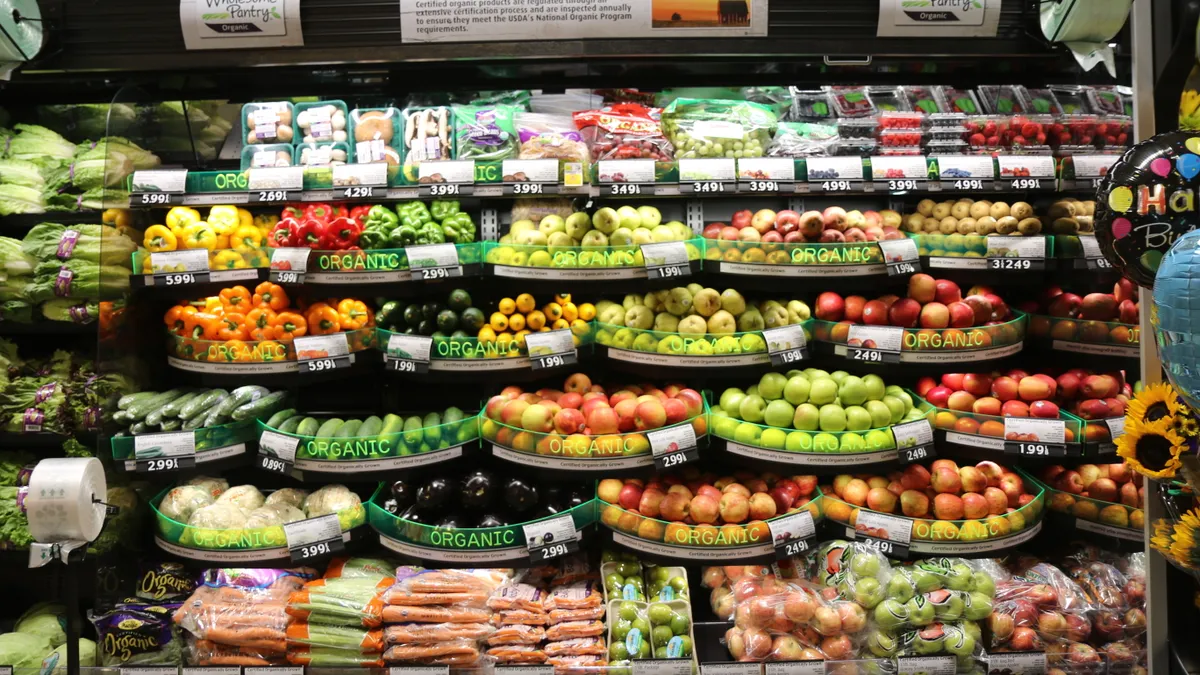Dive Brief:
- Inadequate infrastructure, a dearth of efficiency effort targeted a reducing loss and waste, little collaboration across the value chain and lacking regulations are all to blame for supply chains' slow progress in reducing food waste, according to a new report from Boston Consulting Group (BCG).
- Supply chain infrastructure and efficiency alone could reduce the amount of food wasted by $270 billion (in value) of what the report estimates to be a $1.5 trillion problem by 2050.
- Improving and expanding the cold chain, especially in emerging markets, along with implementing digital tools to better match supply and demand, track loss and waste, and allow for dynamic pricing could save millions in lost food, but adoption of such tools has been slow, according to the report.
Dive Insight:
Though the national dialogue around food waste often centers around consumer behavior, the role of private sector companies is the "most critical" in the fight against food waste, since their decisions reverberate up and down the supply chain.
Farms, manufacturers and consumer-facing businesses contribute 58% of all food waste, according to Refed, which represents 8% of all greenhouse gas emissions and contributes to global undernourishment, according to the UN’s Food and Agriculture Organization and the World Resources Institute.
To some extent, each link in the chain depends on best practices at the previous link, to ensure that as much shelf life is passed on as possible. BCG asserts private sector companies hold the most influence over the players up and downstream, including farmers, legislators and even consumers. Businesses also have funds to invest in new technology.
According to the report, current common KPIs in the food industry are not conducive to managing or reducing waste since manufacturers are more focused on speed of production. But the report helps illustrate what increasing cold chain proficiency and general supply chain efficiency could look like in the critical areas of cold chain, repurposing waste and localizing supply chains.
A few examples provided by the report:
- Maersk outfitted 270,000 containers with IoT technology that monitors and records the temperature, humidity and power level in each container so that a malfunction is not a surprise at the destination, but can be mitigated in real time.
- Zembra Group is repurposing olive waste from the oil extraction process into materials used in agriculture, cosmetics and construction.
- PepsiCo provides training and technical support to farmers local to its production facilities to cut down on loss in transit.
BCG found that the supply chain efficiencies that benefit food waste also help the bottom line as companies considered by BCG to be leaders in reducing their "total societal impact," including waste, have margins 3.3% higher than their peers.
The bottom line, according to the report, is that the trillion dollar problem of food waste cannot be solved without effort and even leadership from the private sector.














